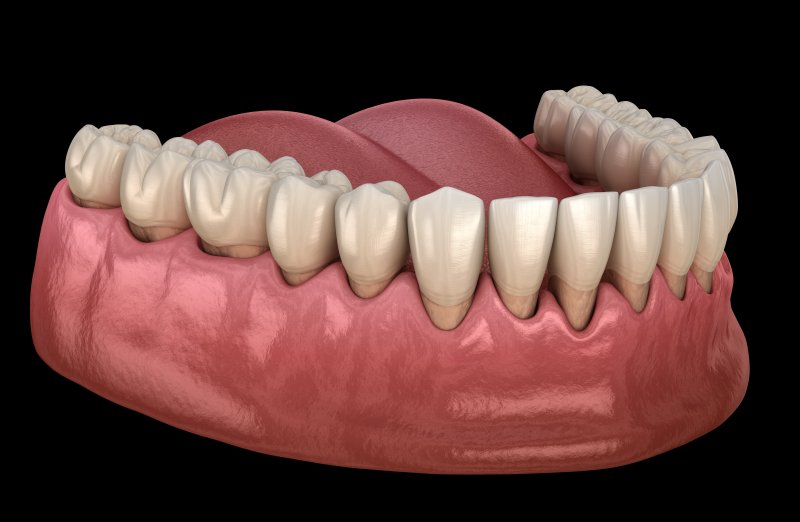
When you begin to notice that your gums appear red and tender, or they begin to bleed after brushing and flossing, you may enter into panic mode as you scramble to determine the underlying cause. But not everything you read or hear is true, especially when it comes to dentistry. To help you avoid any miscommunication or outright lies, here are three common myths about gum disease your dentist is here to debunk.
Myth #1: Most People Never Develop Gum Disease
As much as dentists wish this were true, unfortunately, it’s not. The Centers for Disease Control and Prevention (CDC) reports that half of Americans who are 30 years of age and older have periodontitis. Many do not realize there is a problem until the disease progresses beyond the reversible stage known as gingivitis. Although best to detect and treat early on, patients who have more aggressive forms like periodontitis can still undergo treatment to recapture better gum health. However, without treatment, the bacterial accumulations will worsen, causing bone and tooth loss.
Myth #2: Having Diabetes Means I’ll Develop Gum Disease
Although having diabetes does make a person more likely to develop gum disease, it is not a guarantee. Properly managed diabetes helps to lower the risk; however, if steps are not taken to reduce blood sugar levels, an impaired immune system can make it easier for bacteria to attack the gum tissues and create problems for the teeth, soft tissues, and bone. This is why it is highly recommended that individuals with diabetes remain in close contact with their physicians to ensure that blood sugars remain at healthy levels so that other problems throughout the mouth and body do not develop.
Myth #3: Bleeding Gums While Pregnant Isn’t a Big Deal
It is true that when a woman becomes pregnant, her hormones can cause an array of changes throughout the body. One of the most well-known is “pregnancy gingivitis.” Because of the hormonal changes, many women begin to see their gums bleed during the nine months. However, not all women experience this, and if they do, it’s imperative that they seek the help of a local dentist right away. To avoid more serious issues or advanced gum disease, women will need to maintain good oral hygiene during pregnancy as well as attend frequent, professional dental cleanings.
Now that you know the truth behind these myths, you can feel more confident about your oral health and what you need to do to take better care of it.
About the Author
Dr. Monica Boehmer understands the difficulties that come with gum disease. When soft tissues become tender, red, and damaged by attacking bacteria, it poses a threat to a person’s teeth, gums, bones, and overall health. This is why she offers gum disease treatment in-house. As a way to treat early and advanced stages of gingivitis and periodontitis, she can help individuals take back their gum health for a brighter future. Contact us at (505) 271-8009 to learn how we can help.
